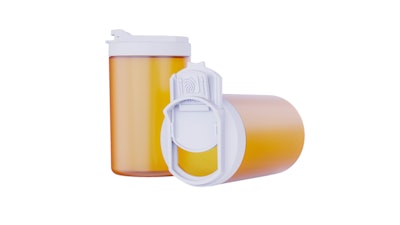
Scranton, PA – SnapSlide recently announced that it was the only product honored in the “Drug & Pharmaceutical” category of the 2024 AmeriStar Awards presented by the Institute of Packaging Professionals (IoPP). The winning product was the company’s no-torque closure allowing single-handed opening and closing while maintaining child resistance criteria – the market’s first such adaptive packaging solution.
SnapSlide’s patented mechanism is designed to empower individuals with physical limitations. The advancement replaces conventional push-and-turn mechanics, making medication more accessible, safer, and easier to use independently.
Key features include:
- No-Torque, Two-Step Opening Mechanism: Ensures single-handed operation.
- Inclusive and User-Friendly: Enhances convenience and independence for consumers, especially those with arthritis or limb differences.
- Sustainability: Uses more than 25% less plastic than conventional Rx packages, with 30% greater efficiency in shipping & distribution.
- Practical Integration: Designed to provide the scale and price points that the industry is accustomed to.
SnapSlide manufactures packaging solutions for a range of industries, including prescription and over-the-counter pharmaceuticals, household products, chemicals and cannabis.
More than 60 million Americans have some form of dexterity issue, including arthritis, fibromyalgia, multiple sclerosis and Parkinson’s disease. Of these, an estimated 12 million are temporarily or permanently unable to use one of their arms or hands. These include amputees, stroke/paralysis patients, and many faced with congenital birth defects.






















